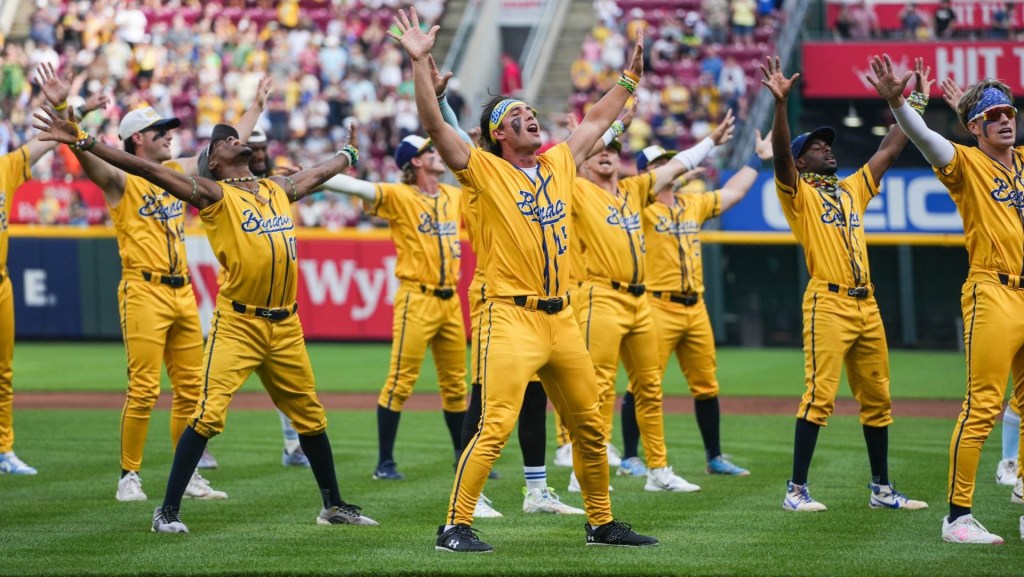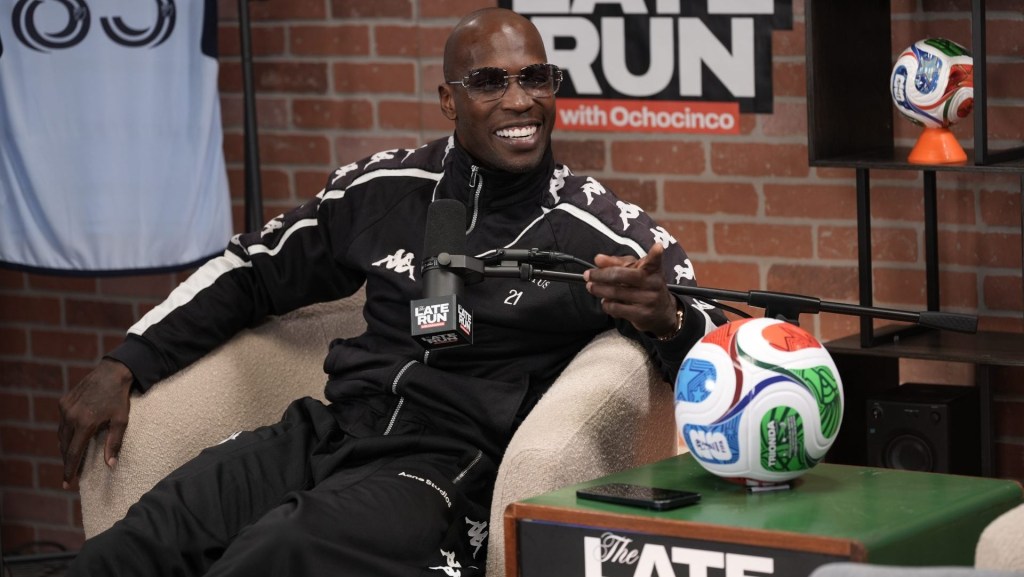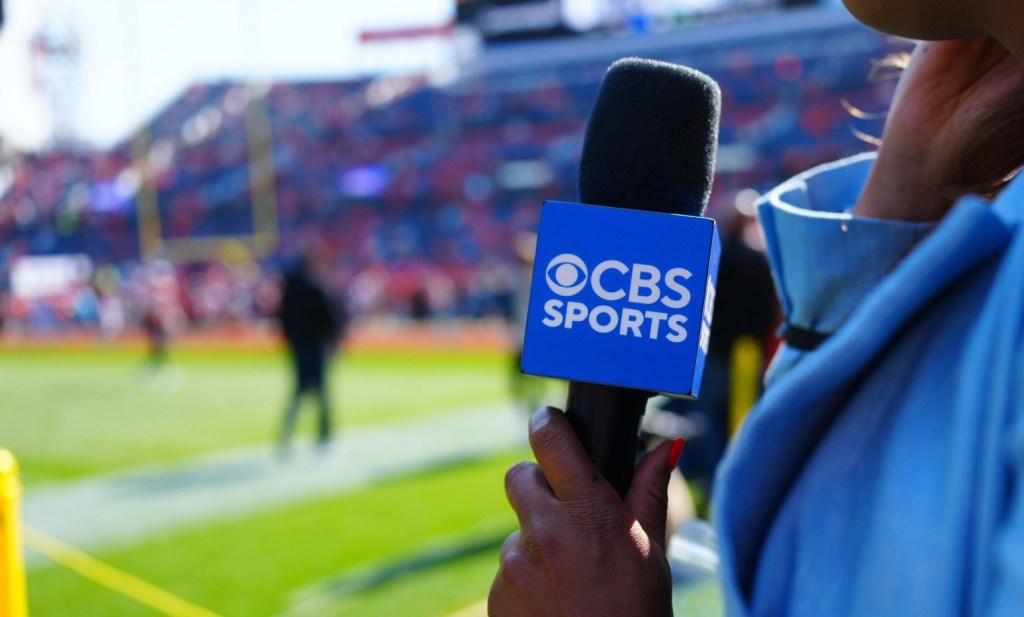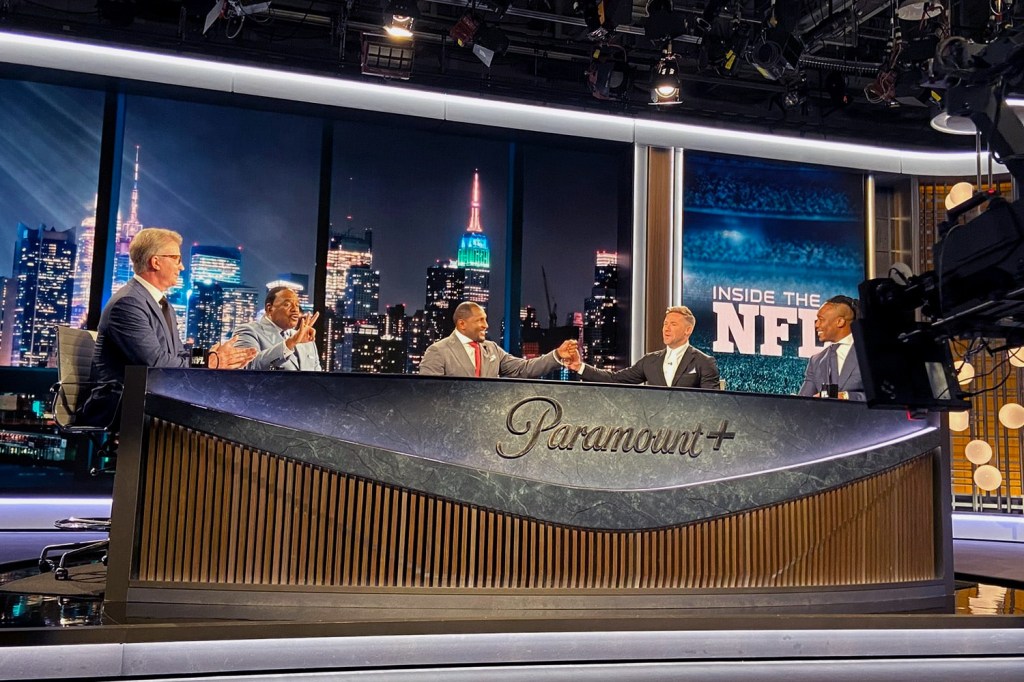The job of the sideline reporter often seems like the simplest one in television – a handful of short interviews and quick stories – what could be so hard about that?
In reality, what looks straightforward is the result of preparation, expertise, and knowing the potential and the limits of the job. Emily Kaplan, who has been a presence throughout the NHL playoffs on ESPN’s coverage, joined the Front Office Sports Today podcast to discuss the life of the sideline reporter, and the challenges and opportunities presented by being a woman in a male-dominated field.
Listen to the full conversation and subscribe to Front Office Sports Today here.
On the advantages to being a woman in the sports media world:
“Women broke the barriers in locker rooms in the 70s and 80s, and so the men that I cover now are so conditioned to having women cover them. That said, there are definitely advantages for me being a woman. I do think that in some ways I have been a diversity hire at certain stops where they were looking for a different voice, and for so long, those voices had been white and male.
“I do know that when I go into a locker room, the guys tend to remember me more than the many, many males that are there before me or around me. I feel like sometimes we can connect on a different level. We can have different conversations that maybe the male reporters don’t feel comfortable having.”
On the challenges:
“But there are disadvantages. I alluded to news breaking. That is completely a relationships business and it’s a male’s world. The way information is passed along from the sources to the journalists, it’s drinking and going out golfing and things where, hey, if I’m drinking with a source at a bar at 11pm, people are going to look at me and then start to wonder the wrong things. I create certain rules for myself. I don’t text guys after certain hours because I don’t want them to get certain ideas.”
Her philosophy as a hockey sideline reporter:
“The biggest difficulty and I think the one that’s unique to hockey is just the time constraints. It is the fastest sport with the least amount of breaks. My biggest fear is talking over game action.
“When I’m asking questions, my philosophy has always been ‘open, lean and neutral.’ Especially for the coaches interviews in the middle of the game, I don’t need to assert my knowledge and say, ‘this is how smart I am. I’m going to give you an observation. Do you agree with me and confirm how smart I am?’ I’m just a vehicle to get their opinions.
On knowing the assignment:
“I’ll often ask them a question, like ‘what do you make of the first period?’ And I sometimes see people say, ‘Oh, Emily Kaplan has such dumb questions.’ Well, they’re actually kind of dumb by design and I have to humble myself in that way because the open, lean, and neutral questions actually get their opinions and how they feel. And then the key there is to follow up in the smart way to dig for more details.
On why these playoffs have been a win for NHL commissioner Gary Bettman:
The parity is something that Gary Bettman, the commissioner, takes a lot of pride in. And that has definitely never been more on display than now, where it really feels like any team can win. The conference finals [was] four sunbelt teams. It’s all teams in warm weather areas. And that was a hallmark of Gary Bettman’s NHL. So we’re celebrating all of these different markets. We’re celebrating all of these different teams and players. We’re at a point now where the highest paid players in the league have all been eliminated. So we’re seeing true teams emerge.
On how Gen-Z players will be different from previous ones:
“Hockey players don’t really put their personality out there. A lot of hockey players don’t use the pronoun ‘I.’ They say ‘we’ or ‘you.’ It’s a weird tick they have. They’re very deferential. Once the generation Z and the younger players who have come up in a different generation and are more comfortable flexing their personality, making it a bit about themselves, that will open up hockey media as well because it shows what we can do to give access to fans.”
On which team will win the Stanley Cup:
“I think it’s Vegas’ time. Ever since they entered the league, they’ve become extremely impatient to win. They’ve been pretty ruthless about it. And they’re just operating at a great level right now. If their goaltending holds up, I think it’s theirs.”





![ESPN Bet broadcasts inside the PGA Tour Studios building in Ponte Vedra Beach, Florida, on March 14, 2025. [Clayton Freeman/Florida Times-Union]](https://frontofficesports.com/wp-content/uploads/2026/02/USATSI_25668497_168416386_lowres-1-scaled.jpg?quality=100&w=1024)

![[Subscription Customers Only] Jun 15, 2025; Seattle, Washington, USA; Botafogo owner John Textor inside the stadium before the match during a group stage match of the 2025 FIFA Club World Cup at Lumen Field.](https://frontofficesports.com/wp-content/uploads/2026/02/USATSI_26465842_168416386_lowres-scaled.jpg?quality=100&w=1024)
![[Subscription Customers Only] Jul 13, 2025; East Rutherford, New Jersey, USA; Chelsea FC midfielder Cole Palmer (10) celebrates winning the final of the 2025 FIFA Club World Cup at MetLife Stadium](https://frontofficesports.com/wp-content/uploads/2026/02/USATSI_26636703-scaled-e1770932227605.jpg?quality=100&w=1024)









